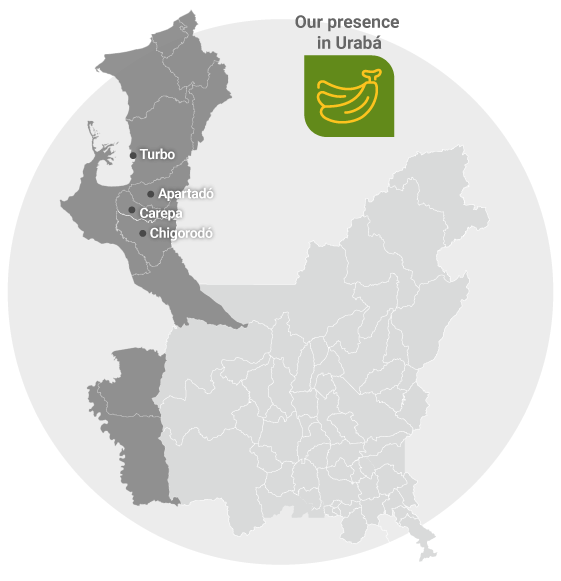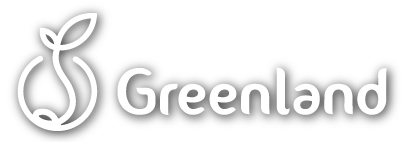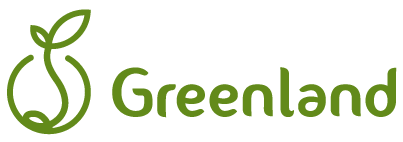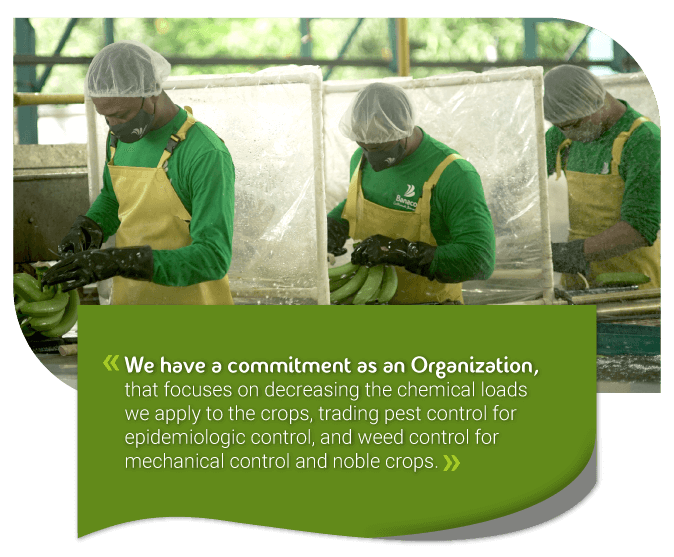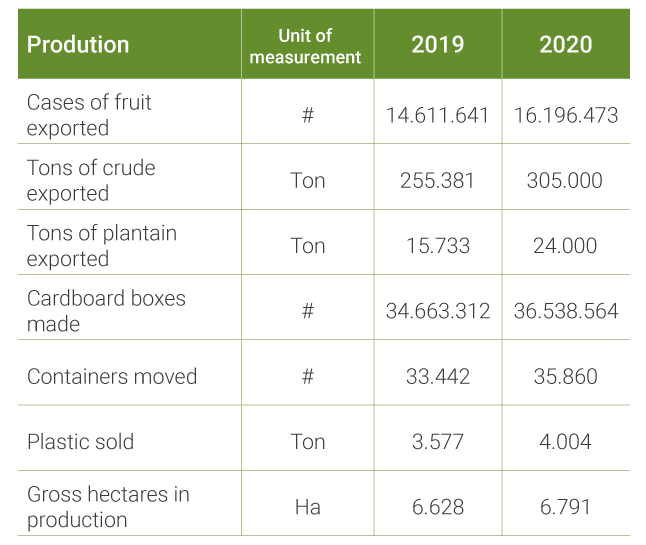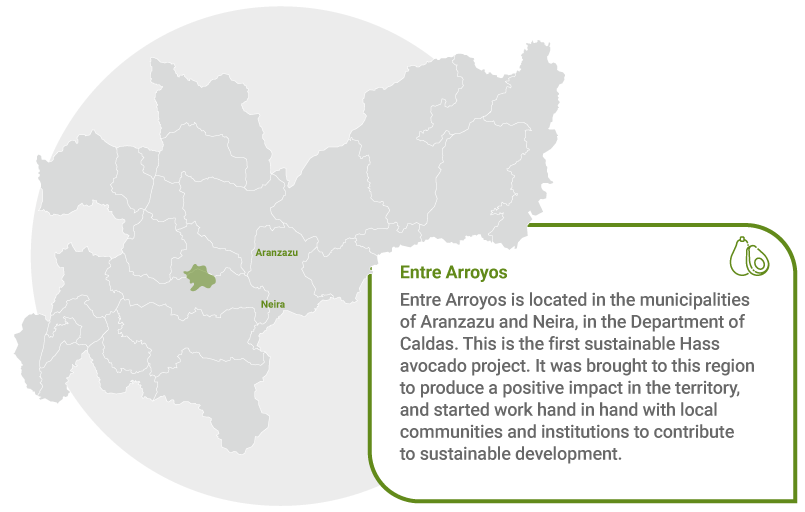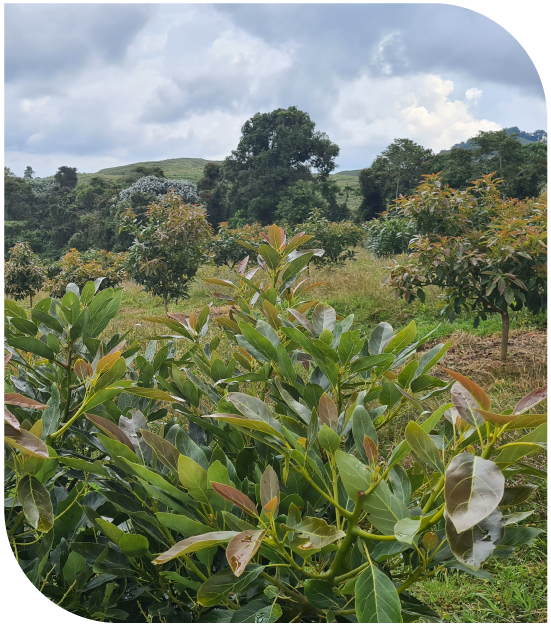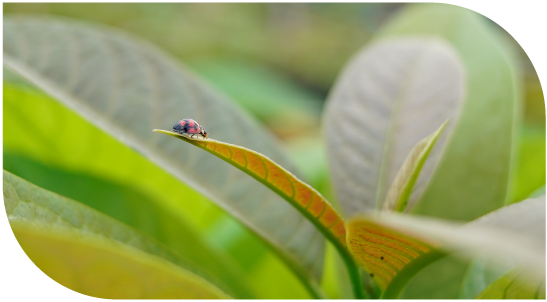With respect to noble covers, we have soils whose characteristics make it possible to use covers over large areas. This reduces the use of herbicides and, by absorbing humidity, provide natural protection from pests, in a natural way, avoiding the use of agrochemicals.
However, are forms of other types of soil in which the weeds are more aggressive and do not allow the use of noble covers. In those cases, we make use of differentiated agricultural chemicals to promote the development of the cultivar.
To control the Sigatoka, there are areas where we have 2000 mm of rainfall and others where the rainfall is 4000 mm approximately. For the areas with 2000 mm we can work with thirty fumigation cycles (approximately), and for the areas with 4000 mm, the job can be done with forty fumigation cycles. The important thing is to ensure in an efficient manner, and most importantly with a low environmental impact, the quality and satisfaction for our clients using the good practices implemented in our farms.
- Nutrition plan in Banacol’s plantations
Our fertilization programs consist of providing all the nutrients required by the crop in order to optimize yields. To do that we have the application of physical mixtures and lime fertilization to meet the requirements defined on the basis of soil and leaf an analysis.
The nutrition plan was implemented In Banacol’s 39 plantations using edaphic fertilization, foliar fertilization, bio stimulation, bio fertilization, and lime fertilization. One of the tools used to design a nutrition plan is soil and foliar analysis. The samples for these analyses were collected in all the plantations in mid-July to be able to make the necessary adjustments before the end of the year and make the nutrition plans for the following year.
To meet the needs of some production areas due to weather conditions, we have irrigation systems in some farms that need it. For that, there are two measurements related to rainfall, evaporation, temperature, and depth of the water table.
These records are used to prepare water balances with humidity additions and losses, and decisions are made to define the drainage or irrigation cycles.
The irrigation system has been shifted from fossil fuels to electrical components to decrease fuel use and be more environmentally friendly.

